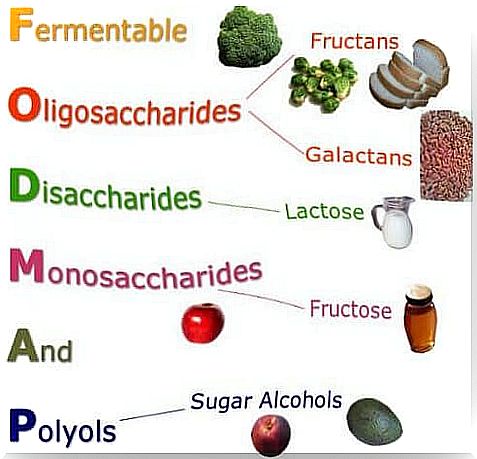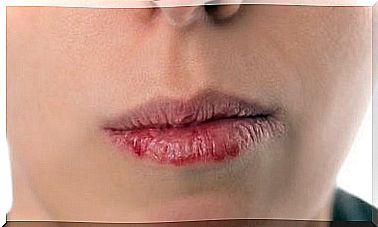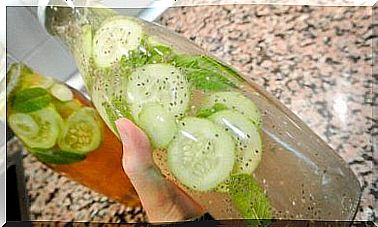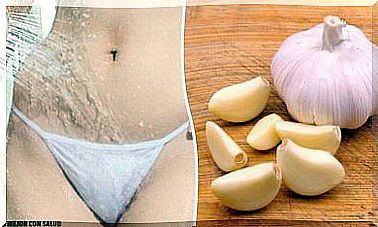6 Diets For People Suffering From Irritable Bowel Syndrome

Do you suffer from irritable bowel syndrome ? So let’s change your eating habits to alleviate its symptoms. In this article, you will learn about 6 types of diets that help with Irritable Bowel Syndrome.
This ailment is most common in women under 45, although of course it also occurs in men and the elderly. This problem affects the large intestine and can cause colic in the lower abdomen, flatulence, constipation or diarrhea.
It is a common condition, but its exact causes are unknown. If you suspect you have irritable bowel syndrome, see your doctor for a diagnosis.
Diet for irritable bowel syndrome
Symptoms can be very bothersome, so specialists recommend dietary changes to alleviate them . However, there is no consensus on the best diet to help control symptoms. Usually recommended:
- Do not eliminate food groups from the diet without medical advice
- Avoid carbonated drinks.
- Limit the consumption of fatty foods.
- Increase your fiber intake.
- Do not eat heavy meals.
- Drink two to three liters of water a day.
- Avoid pods, cruciferous vegetables, and other products that cause gas.
- Eliminate tobacco and alcohol from your diet.
It is worth noting that the diet relieving the symptoms of the Irritable Bowel Syndrome should be personalized.
1. Diet poor in FODMAP
Among the diets that alleviate the symptoms of irritable bowel syndrome is a diet low in FODMAP. In other words, nutrition based on the minimum consumption of short-chain carbohydrates: oligosaccharides, disaccharides, monosaccharides and polyols.
How does restricting the consumption of these foods improve the symptoms of irritable bowel syndrome? It’s simple: many people do not digest these compounds in the small intestine, so they pass into the large intestine, where they feed bacteria and cause symptoms.

According to some hypotheses, avoiding these carbohydrates reduces discomfort because it prevents the food from fermenting with bacteria. However, there are no final studies confirming such a scenario.
At the beginning of the year, the Spanish Association for the Treatment of Problems with the Digestive System recommended that after the first phase of restrictive FODMAP exclusion for 4 to 8 weeks, the previously excluded products should be reintroduced into the diet to check tolerance and establish the least restrictive diet.
Note: Due to the exclusion of some important product groups in this diet, it should be used under the supervision of a specialist. It is necessary to estimate the balance of benefits and risks for a specific person.
2. A lactose-free diet
If your doctor suspects lactose intolerance, you can partially exclude dairy products for one to two months and then re-enable them and observe the patient’s response.
In many cases, Irritable Bowel Syndrome is associated with problems with metabolizing dairy products, so this option may improve the patient’s condition.
3. Gluten-free diet
According to various studies, it is estimated that 30% of patients with celiac disease have previously been diagnosed with irritable bowel syndrome. Therefore, in case of suspected hypersensitivity or allergy to gluten, the doctor should decide whether to exclude it from the diet to see if it is actually causing the symptoms.
4. Diet against constipation
If you suffer from irritable bowel syndrome with chronic constipation, some experts would recommend a diet high in insoluble fiber to speed up bowel movements. It is present in vegetables and whole grain products.
If you have alternating episodes of constipation and diarrhea, include foods high in soluble fiber – oatmeal, barley, seeds, and fruit – in your diet .
5. Diet against diarrhea
Among the diets recommended in the case of irritable bowel syndrome, mention should be made of the one that helps to control diarrhea. This is a common symptom. It requires special attention due to potential problems with absorption of nutrients.
If you have diarrhea regularly, avoid coffee and alcohol, which stimulate bowel movement, as do dairy products. However, don’t forget to replace them with other sources of calcium, such as soy milk.
6. Recommendations of sanitary institutions
It is impossible to create a list of products recommended for all people suffering from irritable bowel syndrome, because, as we mentioned at the beginning of this article, the diet should be personalized depending on the symptoms and reactions of a given patient.
However, we present a selection of products that may be considered advisable, contraindicated and prohibited according to the Department of Endocrinology and Clinical Nutrition of the University Hospital of Valladolid (Castilla, Spain).
Products indicated:
- Whole wheat bread, wheat bran, and whole wheat flakes
- Whole eggs
- Vegetables and fruits
- Skim dairy
- Lean meat
- Dried fruits
- Olive oil in moderate amounts
- Water
- Infusions.
Products not recommended in large quantities:
- Fatty fish
- Cured meats
- Legumes.
Prohibited products:
- Bloating vegetables such as cauliflower and broccoli
- Fatty cheeses and full-fat dairy products
- Red meat and cold cuts
- White bread
- Butter and margarine
- Hot sauces
- Purchase sauces
- Coffee
- Alcohol
- Fizzy drinks.
Note: These are recommendations for products where patient tolerance should also be taken into account. It is possible that the indicated products cause ailments in someone. The above list is not 100% applicable to all patients.
Check with your healthcare professional before making any changes to your diet. An Irritable Bowel Syndrome Specialist is the right person to design an eating plan tailored to your symptoms and needs.









